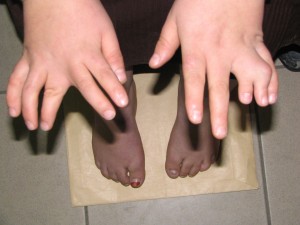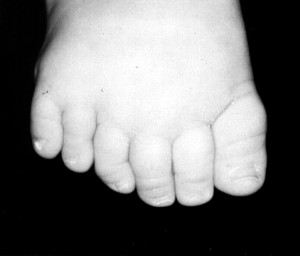Bardet-Biedl Syndrome is a genetic disease characterized by obesity, hypogonadism, renal failure and many other problems. Get to know more about this disease, including its causes, symptoms, diagnosis and treatment options.
Bardet-Biedl Syndrome Definition
Page Contents
- 1 Bardet-Biedl Syndrome Definition
- 2 Bardet-Biedl Syndrome History
- 3 Bardet-Biedl Syndrome Incidence
- 4 Bardet-Biedl Syndrome ICD-9 Code
- 5 Bardet-Biedl Syndrome Synonyms
- 6 Bardet-Biedl Syndrome Causes
- 7 Bardet-Biedl Syndrome Symptoms
- 8 Bardet-Biedl Syndrome in Babies
- 9 Bardet-Biedl Syndrome Treatment
- 10 Bardet-Biedl Syndrome Diagnosis
- 11 Bardet-Biedl Syndrome Differential Diagnosis
- 12 Bardet-Biedl Syndrome Complications
- 13 Bardet-Biedl Syndrome Prognosis
- 14 Bardet-Biedl Syndrome Prevention
- 15 Bardet-Biedl Syndrome Pictures
- 16 Bardet-Biedl Syndrome Life expectancy
It is a rare genetic disorder that affects the brain and gives rise to various physical problems, including deterioration of the intellectual and neurological functions. Most cases of this syndrome are genetic in nature. The syndrome affects both men and women.
Bardet-Biedl Syndrome History
The first case of this rare genetic disorder was reported in the year 1866 by Laurence and Moon in London. However, the syndrome is named after Georges Bardet and Arthur Biedl. Recent research on this genetic disorder has identified 14 genetic forms.
Bardet-Biedl Syndrome Incidence
This condition occurs throughout the world with changing frequencies. Its rate of prevalence in Europe and North America ranges from 1:140 000 to 1:160 000. On the other hand, in Kuwait and Newfoundland, the rate is quite high with an estimated range of 1:13 500 and 1:17 500.
This is said to be a rare syndrome as the recessive gene that causes BBS is only carried by 1 out of 150 people.
Bardet-Biedl Syndrome ICD-9 Code
The ICD-9 code for this syndrome is 759.89.
Bardet-Biedl Syndrome Synonyms
This syndrome is known by various other names, such as:
- BBS
- Laurence-Moon- Bardet-Biedl Syndrome
- Laurence-Moon-Biedl Syndrome
- LMBBS
- LMS
Bardet-Biedl Syndrome Causes
Several causes are responsible for this pleitropic disorder, most of which are monogenic. BBS is characterized as recessively inherited. Although parents do not exhibit this disorder, both fathers and mothers of affected children are seen as the carriers of this recessionary gene that results in the disorder. Mothers having one affected child have a 25 percent chance of giving birth to another child with the condition in their second pregnancy. There is also a strong possibility that children born of later pregnancies would take forward the recessive gene but not be affected. The person carrying the gene has a less chance of conceiving kids with another person carrying the same gene. It is not known whether the syndrome can also affect those who do not have any family history of the disorder.
Bardet-Biedl Syndrome Symptoms
BBS is basically a ciliopathic human genetic disorder affecting several parts of the body. It is primarily characterized by hypogonadism, retinitis, obesity, polydactyly and renal failure. According to research, mental retardation (a generalized disorder appearing before adulthood) is one of the major symptoms of this syndrome.
Know about the most common problems that most BBS patients suffer from –
Primary symptoms
These include:
- Rod/con dystrophy
- Obesity
- Brachydac
- Hypogenitalism
- Learning difficulties
- Renal abnormalities
Secondary Symptoms
These involve:
- Speaking problems
- Abnormalities in behavior
- Eye abnormalities
- Brachydactyly
- Syndacrtyly
- Diabetes mellitus
- Cardiovascular anomalies
- Hepatic or liver problems
- Olfactory dysfunction
- Fibrosis
- Ectopic urethra
- Septate vagina
- Hypoplastic
- Hypoplastic Fallopian tubes
The syndrome can even affect eyesight along with a severe condition termed Rod-cone dystrophy. BBS also affects babies on several parts of their bodies. Kidney abnormalities arising due to this condition can become severe, resulting in life-threatening complexities.
Bardet-Biedl Syndrome in Babies
BBS is a rare birth problem that causes problems in the functioning of body parts. A child diagnosed by this disorder experiences many physical problems, like:
- Vision loss
- Extra fingers/toes
- Obesity
- Underdeveloped secondary sex characteristics
- Kidney problems
- Liver problems
- Developmental delays
Kids affected with BBS typically suffer from vision loss problems at a very small age. This birth disorder is inherited and is basically autosomal recessive in nature. Both parents have the defective gene responsible for this syndrome. This condition can be diagnosed by genetic testing.
Bardet-Biedl Syndrome Treatment
Although this condition is incurable, an early diagnosis of BBS can help an affected patient to be monitored so that the symptoms can be addressed as soon as possible. It is really difficult to diagnose the syndrome at a very young age as most of its symptoms are not easily apparent and vary from one patient to another. Although there is no specific medical treatment for the disease, physicians tend to focus treatment on addressing the specific organs and systems that are affected by BBS.
Bardet-Biedl Syndrome Diagnosis
The diagnosis of this condition is not very easy as the diagnostic procedure is based on the presence of four primary features. The average age for detection of the syndrome is 9 years, when visual problems begin to appear. As per medical report, however, there are cases where diagnosis has been done after 50 years of age. It is also said by doctors that BBS might be essentially under-diagnosed.
Genetic testing for BBS can confirm diagnosis of this syndrome based on the presence of clinical features. Genetic testing for the purpose of mutation in BBS genes can allow diagnosis of the condition in infants having postaxial polydactyly. Polydactyly occurs at a frequency of 1:1,500 in the whole population. In African-American infants, genetic testing for BBS can only be successful if Polydactyly is endured by another symptom of BBS.
Bardet-Biedl Syndrome Differential Diagnosis
The symptoms of BBS considerably overlap with those of a disorder known as Laurence Moon Syndrome, a different condition with its own distinct symptoms. This syndrome is characterized by mutation in genes linked to BBS. The differential diagnosis of BBS involves distinguishing it from Laurence Moon Syndrome.
Bardet-Biedl Syndrome Complications
Some complications are observed in patients suffering from this condition. Individuals suffering from BBS are known to have an increased risk of developing diabetes. This happens due to obesity or particular genetic defect responsible for the growth of BBS. While surviving from diabetes the body cannot break down food properly and the pancreas does not produce enough insulin, which is essential for absorbing dietary sugar in blood. All these lead to an increase of glucose in blood that can cause damage to heart, kidneys, eyes and nerves. Individuals suffering from BBS may have heart problems due to diabetes and high blood cholesterol. Kidney problems, ranging from mild to severe, can also occur. If not treated properly, these can be life threatening in some cases.
Bardet-Biedl Syndrome Prognosis
The outcome of this syndrome is very poor in cases where renal failure occurs.
Bardet-Biedl Syndrome Prevention
There is no prevention for BBS as such. However, genetic counseling and preconception genotyping of family members can be effective in averting this disease. If you are suffering from any of the abovementioned symptoms, consult a doctor so that he can detect whether or not you are suffering from BBS. Proper treatment is mandatory as soon as the symptoms become apparent.
Bardet-Biedl Syndrome Pictures
Take a look at these pictures to get an idea of the physical appearance of patients affected by BBS.
Picture 1 – Bardet-Biedl Syndrome
Picture 2 – Bardet-Biedl Syndrome
Bardet-Biedl Syndrome Life expectancy
People affected with BBS can easily live up to 50 yrs. According to CIA World Factbook 2010, the life expectancy of BBS sufferers in Lithuania is 70 years for men and 80 years for women.
References:
http://en.wikipedia.org/wiki/Bardet%E2%80%93Biedl_syndrome
http://www.visionrx.com/library/enc/enc_bardetbiedl.asp#what
http://children.webmd.com/bardet-biedl-syndrome
http://www.athenadiagnostics.com/content/diagnostic-ed/endocrinology/bardet-biedl-syndrome



like it
My grandson has BBS. His parents are both high school teachers. Henry is almost 12 yrs old. He has many of the classic symptoms. But he is a happy child who loved school & music.